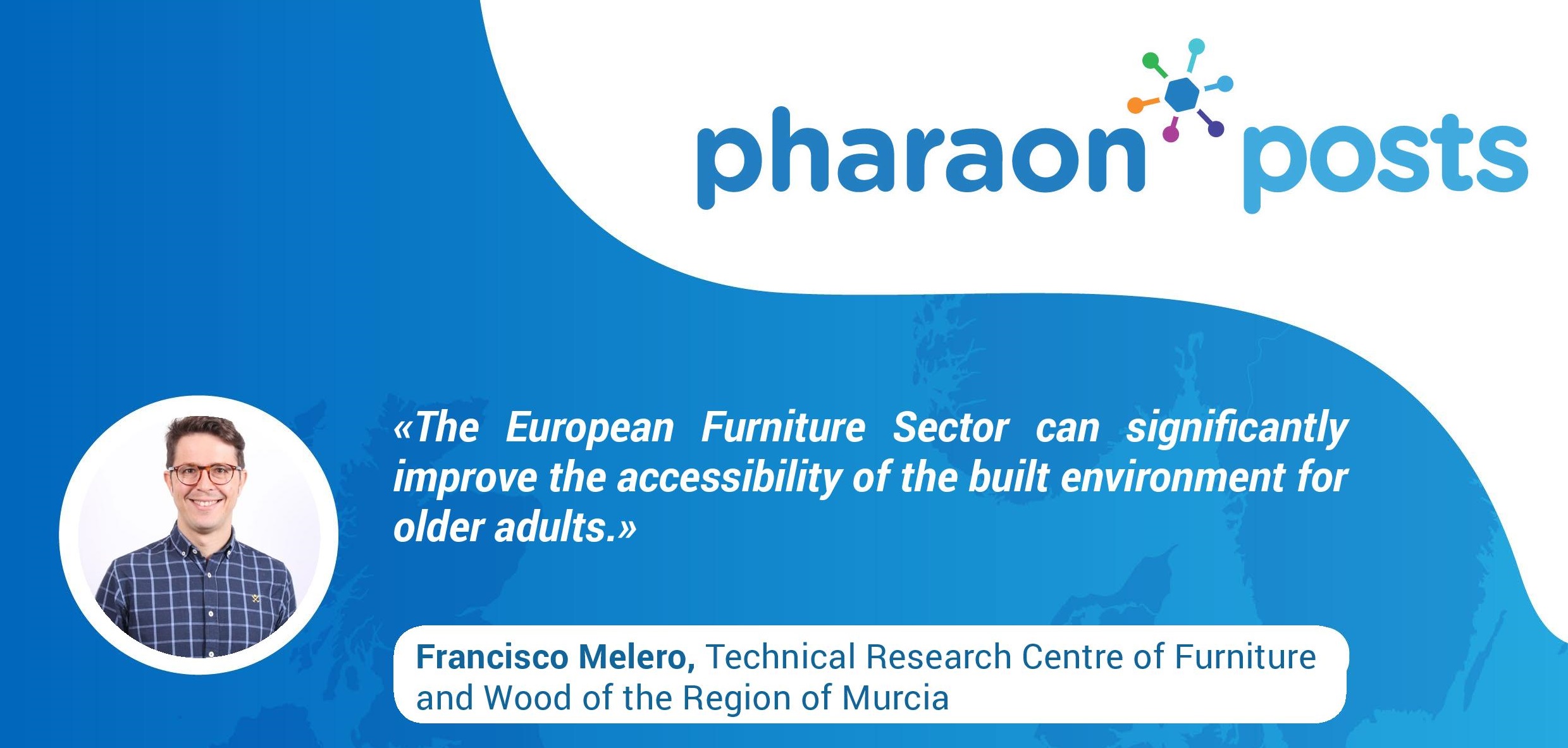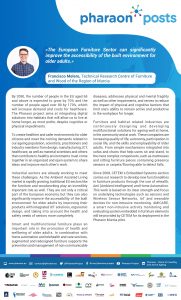
10 Mar Pharaon Posts! Francisco Melero, Murcian Pilot Coordinator
 By 2050, the number of people in the EU aged 65 and above is expected to grow by 70% and the number of people aged over 80 by 170%, which will increase demand and costs for healthcare. The Pharaon project aims at integrating digital solutions into habitats that will allow us to live at home longer, as most prefer, despite cognitive or physical impediments.
By 2050, the number of people in the EU aged 65 and above is expected to grow by 70% and the number of people aged over 80 by 170%, which will increase demand and costs for healthcare. The Pharaon project aims at integrating digital solutions into habitats that will allow us to live at home longer, as most prefer, despite cognitive or physical impediments.
To create healthier and safer environments for older citizens and meet the coming demands related to our ageing population, scientists, practitioners and industry members from design, manufacturing, ICT, healthcare, as well as material scientists and others that contribute to healthy environments must come together in an organized and open system to share ideas and improve each other’s work.
Industrial sectors are already working to meet these challenges. As the Ambient Assisted Living market is rapidly growing, traditional EU sectors like the furniture and woodworking play an incredibly important role as well. They are not only a critical part of the European economy, but they can also significantly improve the accessibility of the built environment for older adults by improving their products with integrated ICT solutions, ergonomic design, and taking into account the health and safety needs of seniors more completely.
Smart and multifunctional furniture plays an important role in the promotion of health and wellbeing of older adults. In combination with home automation and telehealth and care services, augmented and redesigned furniture supports the prevention and management of non-communicable diseases, addresses physical and mental fragility as well as other impairments, and serves to reduce the impact of physical and cognitive barriers that limit one’s ability to remain active and productive in the workplace for longer.
Furniture and habitat related industries are continuously designing and developing multifunctional solutions for ageing well at home, in the community and at work. These companies are increasing quality of life, autonomy, participation in social life, and the skills and employability of older adults. From simple mechanisms integrated into sofas and chairs that help users sit and stand, to the more complex components, such as mattresses and sitting furniture pieces containing presence sensors or carpets/flooring able to detect falls.
Since 2008, CETEM´s Embedded Systems section carries out research to develop new functionalities in furniture products through the use of eHealth, AmI (Ambient Intelligence) and Home Automation. This work is based on its clear strength and focus on underlying technologies such as sensors and Wireless Sensor Networks, IoT and wearable devices for non-intrusive monitoring. AMICARE, a smart non-intrusive activity monitoring and evaluating system embedded in furniture elements will be provided by CETEM for its deployment in the Pharaon Murcia pilot.
Download “Francisco Melero – Pharaon Post” as .pdf (click here)

